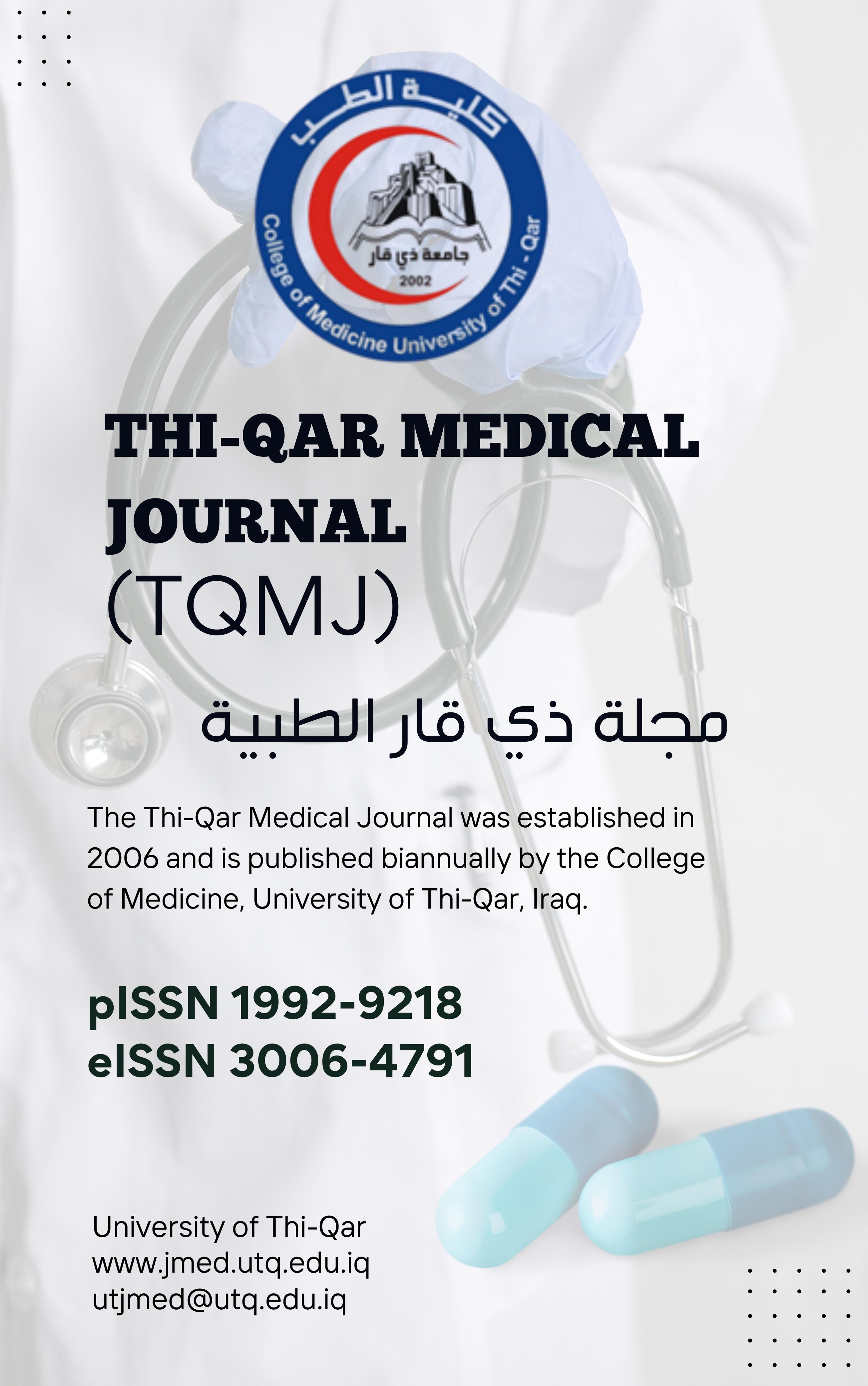The impact of antihypertensive medication class on pulse pressure
DOI:
https://doi.org/10.32792/tmj.v4i1.276Abstract
Background : Hypertension with high pulse pressure causes more arterial damage compared to high blood pressure with normal pulse pressure .
Objective: This is a cross section descriptive study carried out to explore the efficacy of different antihypertensive therapies using the pulse pressure as a predictor of better response and show the associations between antihypertensive medication class and the magnitude of pulse pressure among persons receiving treatment for hypertension.
Patients and methods: 921 hypertensive patients on different antihypertension medication classes who attending An Nasiriyah General Hospital out patients over 6 months are examined to determined their pulse pressure and compared the results of different groups according to age of the patients and antihypertension medication classes.
Results: hypertensive subjects who used diuretics alone or in combination with beta-blockers had lower mean pulse pressure as compared with those using other agents and this finding is so clear and statically significant among patients older than 60 with no sex difference.
References
William F. Ganong, dynamic of blood and lymph flow, Review of medical physiology,21st ed. , Lange medical publications, Sanfrancisco,USA,2003, pp.579-598.
Blacher J, Staessen JA, Girerd X, Gasowski J, Thijs L, Liu L, Wang JG, Fagard RH, Safar ME. Pulse pressure not mean pressure determines cardiovascular risk in older hypertensive patients. Intern Med 2000 Apr 24; 160(8):1085-9
Gordon H. Williams: Hypertensive vascular disease , In Fuci AS,Braunwald E, Isselbacher KJ.et al (EDS).Harrison principles of internal Medicine (14th ed.).New York, McGraw-Hill, 1998:pp.1380-1394.
Rouke,M,etal .pulse pressure, Is this a clinically useful risk factor ? Hypertension,1999,34 –372.
Ronald G. Victor, arterial hypertension, Lee Goldman, Dennis Ausiello. Cecil Medicine, 23rd ed. Philadelphia, Saunders elsevier, 2007; pp256-277
Franklin, SS, et al. Is pulse pressure useful in predicting risk for coronary heart disease? The Framingham heart study. Circulation, 1999 July 27; 100(4):354-60.
Vaccarino, V, et al. Pulse pressure and risk of cardiac events in the Systolic Hypertension in the Elderly (SHE) program. American Journal of Cardiology, 2001 Nov 1; 88(9):980-6.
Domanski, MJ, et al. Isolated systolic hypertension: Prognostic information provided by pulse pressure. Hypertension, 1999 Sep; 34(3):375-80.
Snijder MB, van der Heijden AA, van Dam RM, et al (2007). The Hoorn Study". Am. J.Clin. Nutr.. 85 (4): 989-95.
Staessen JA, Wang JG, Thijs L: Cardiovascular protection and blood pressure reduction: A quantitative overview updated until 1 March 2003. J Hypertension 2003; 21:1055-1076
Blood Pressure Lowering Treatment Trialists' Collaboration: Effects of different blood-pressure-lowering regimens on major cardiovascular events: Results of prospectively-designed overviews of randomised trials. Lancet 2003; 362:1527-1535.
Williams B et al.; British Hypertension Society (2004) Guidelines for management of hypertension: report of the fourth working party of the British Hypertension Society, 2004-BHS IV. Journal of Human Hypertension, 18(3): 139-185.
Garg J, Messerli AW, Bakris GL: Evaluation and treatment of patients with systemic hypertension. Circulation 2002; 105:24581
Chobanian AV, Bakris GL, Black HR, etal. The seventh report of the Joint National Committee on prevention, detection, evaluation, and treatment of high blood pressure. JAMA 2003; 289:2560--2572.
Asmar R, Brisac, Institute Cardiovascular, Paris, France, A Reference values for clinic pulse pressure in a non selected population. Am J Hypertension 2001 May; 14:415-8




